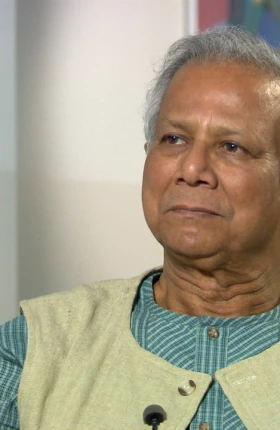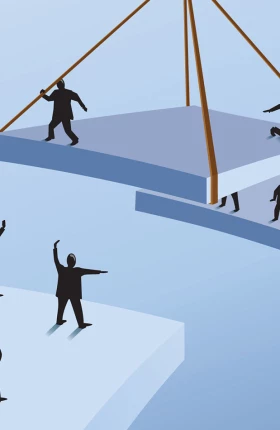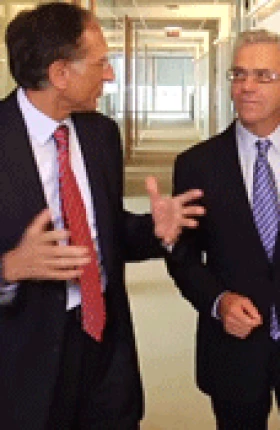Jochen Ebert is the managing director of Danone India. Previously, he managed the launch of Grameen Danone Foods in Bangladesh, a social business that sells fortified yogurt at affordable prices. The yogurt is specifically formulated to address child malnutrition among the poor in rural parts of the country.
What impact did Grameen Danone Foods in Bangladesh have on Danone’s core business?
Grameen Danone Foods allowed us to experiment with new approaches and processes. A big corporation becomes more and more top-down in the way it is managed. Our social business in Bangladesh was really created bottom-up. Instead of being part of a big hierarchy, we were a small group of people making decisions. This had a significant impact on how we ran the business.
For example, it was absolutely unthinkable for Danone to have a factory that generated fewer than 20,000 tons of yogurt per year. Yet our factory in Bangladesh has only a 2,000-ton capacity and far lower capital expenses. Here, we are capable of managing small, and we try to keep costs as low as we can. Since this is a small startup and we cannot afford high overhead, we’ve had to put very junior people into senior management positions. We have had time to experiment, because the absolute losses that we create are not so significant. This is revolutionary thinking for a company like Danone.
Also, there have been fantastic new learnings in terms of going to market, understanding and reaching consumers, and creating products that our customers want. The direct-delivery systems we created in Bangladesh are smaller and more effective than what we have in many other countries. And we’ll be launching some products in France that were strongly inspired by our products in Bangladesh.
Our social business is a lever that people still don’t fully understand because the traditional communication and learning flows are from West to East. People in the West aren’t very open to hearing, “Here’s how we do it in Bangladesh.” But it’s an extremely powerful tool, especially if more and more people in the company have these kinds of experiences. We underexploit it massively, but we’ve learned a lot from it.
You mentioned that Danone will be launching some products in France that were inspired by the Bangladesh experience. Can you tell us more?
We made some innovations in the product formulation. Milk is very expensive in Bangladesh, but other ingredients can provide the needed nutrition profile at a lower cost. These ideas can be applied in developed countries as well.
Another idea with the potential to travel elsewhere is how we go to market—and the need to explore different distribution channels. In developed countries, such as Germany and France, we sell 80 percent of our products through supermarkets. But in India, for example, we sell via carts. I don’t know if this approach is completely applicable in other areas, but the very act of breaking down mental barriers can be hugely inspirational for big companies.
In Europe, where there are many steps between the manufacturer and the consumer, there may be opportunities to sell products directly—and not necessarily via carts going through Paris. We have a big Danone building in Spain where we sell products directly to consumers. It wasn’t directly inspired by Bangladesh, but this type of thinking can lead to innovation.
Have you gained any other insights from your Bangladesh experience?
One key learning is in the area of business planning. Companies are spending an increasing amount of time planning and then translating those plans into PowerPoint charts. In Bangladesh and India, we learned that it doesn’t really help to plan more and more and more—your plan is going to be wrong.
This experience radically changed how I look at the process. I no longer see it as first the planning, then the action. Now it’s first the action, then the planning. It’s really the ability to act something out, to experiment with something that may be a little vague or entrepreneurial. Since we can’t manage uncertainty, it’s better to manage small, modular experiments and see their impact on the business—instead of taking the traditional approach of adding one business plan to the next, knowing that they’ll never happen but pretending they will.
To generalize, if a company wants to take the risk of building businesses in emerging countries, then it also has to take the risk of nonplanning, taking action, and then planning. If it doesn’t work, you cut your losses and exit. And if it works, you adjust it step by step. This is a permanent, interactive process of correction. It is very, very unlikely that you’ll get it right the first time. I have never seen that, because these countries are fundamentally different than where you’re used to operating.




